Understanding Quantities Numbers Worksheets for Ages 5-9
6 filtered results
-
From - To
Understanding Quantities Numbers Worksheets for Ages 5-9 are specially designed to build a strong foundation in math for young learners. These engaging, colorful worksheets help children grasp the concept of quantities, improve counting skills, and understand number relationships. Perfect for both classroom and home use, they provide a fun, interactive way for kids to practice and master early math skills, ensuring a smooth transition to more advanced math topics. Aligned with educational standards, these worksheets promote active learning and intellectual growth, giving children the tools they need to succeed in mathematics.
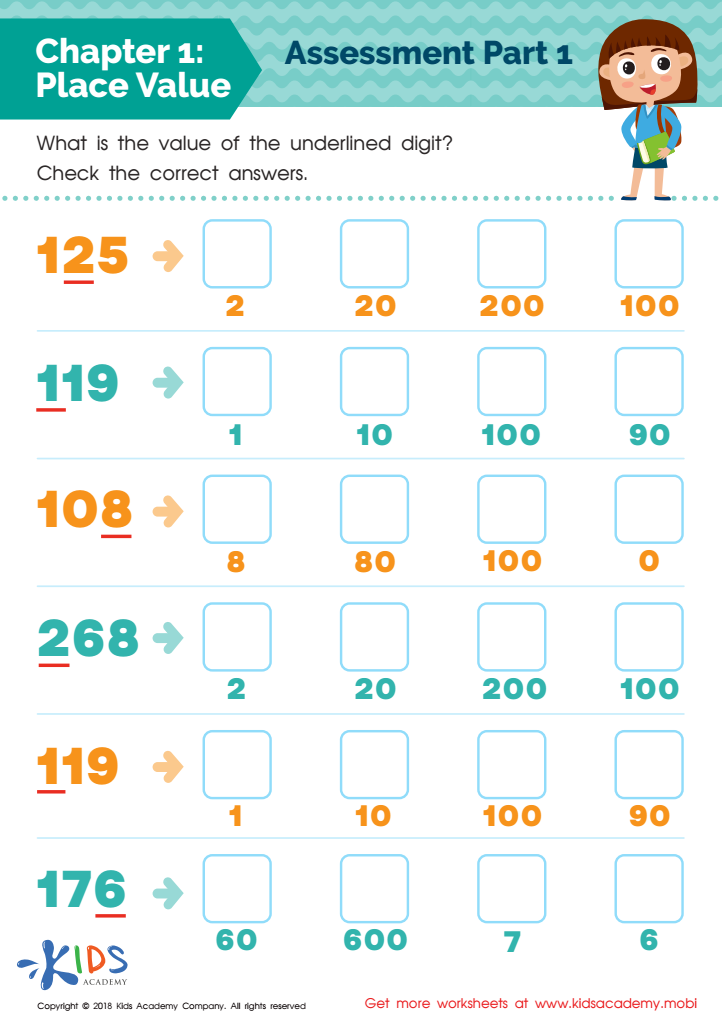

Place Value: Chapter 1 Worksheet
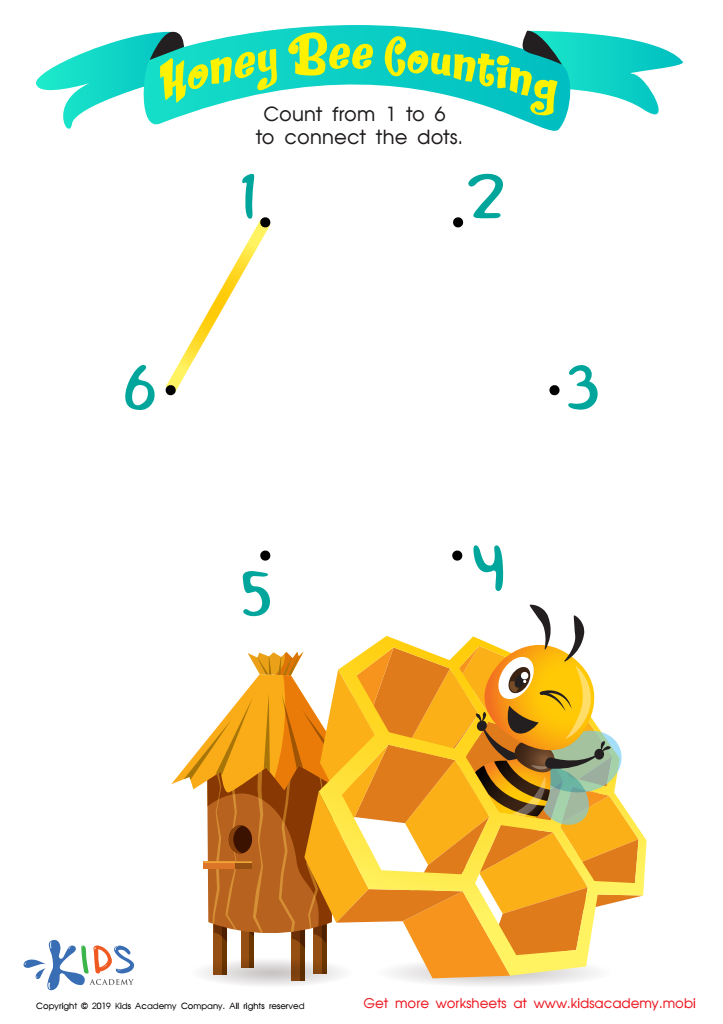

Honey Bee Counting Worksheet
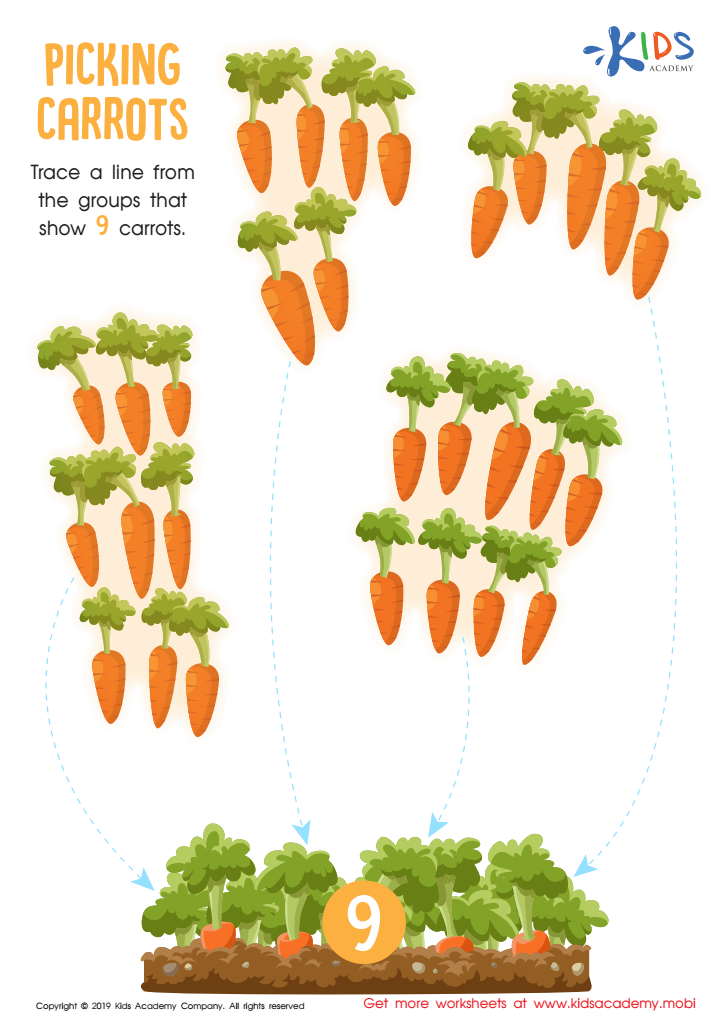

Picking Carrots Worksheet
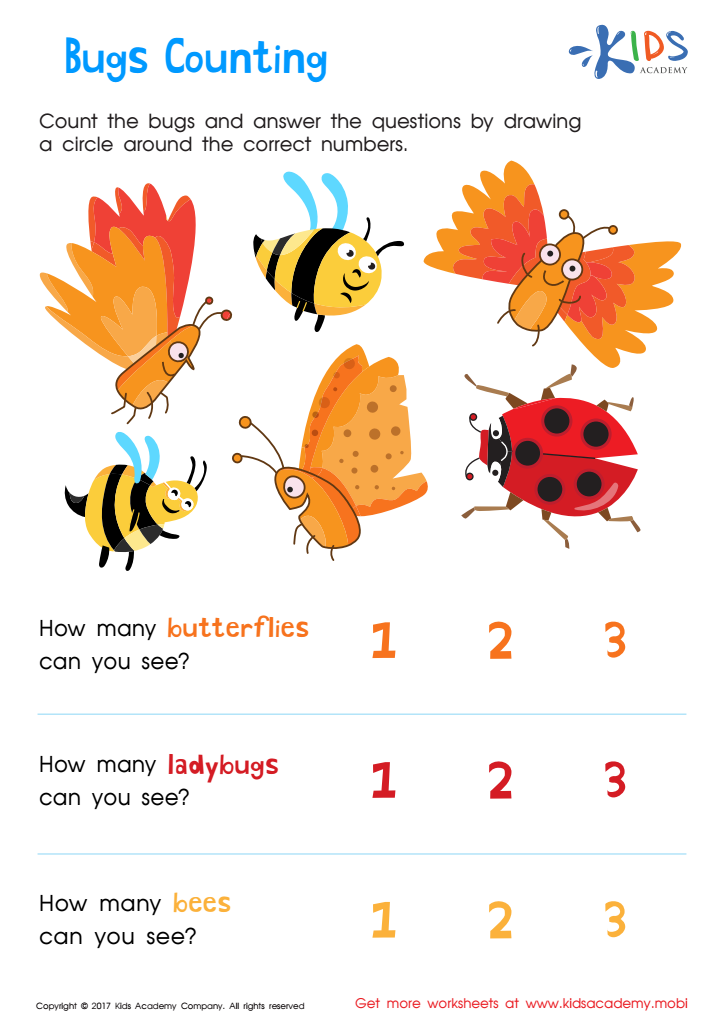

Bugs Counting Worksheet
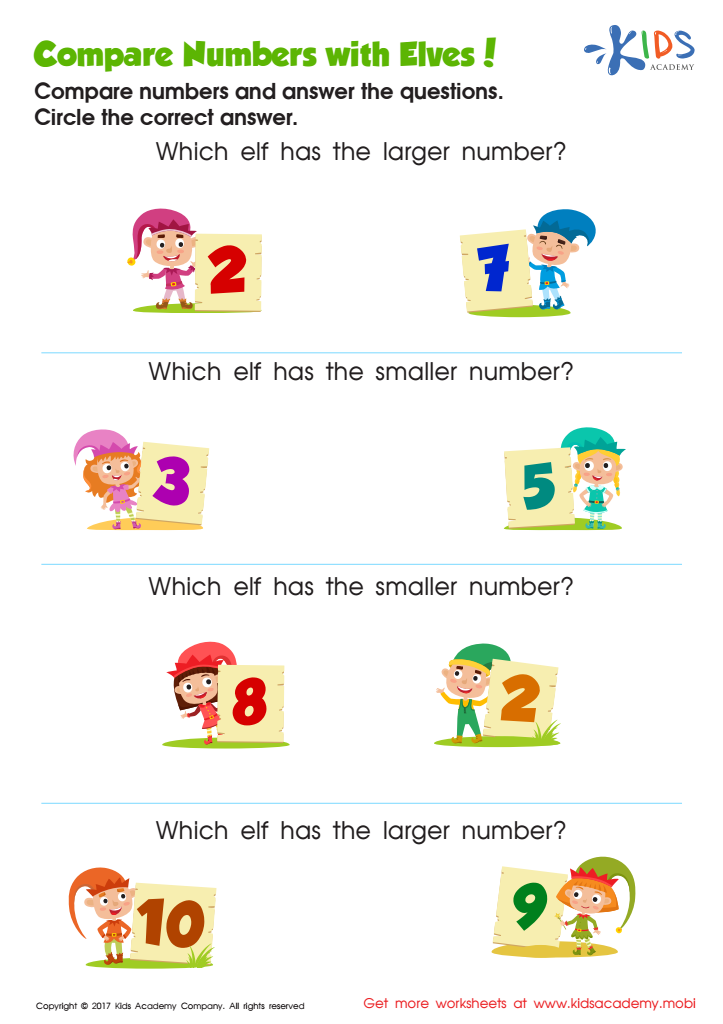

Comparing Numbers Worksheet for Kindergarten
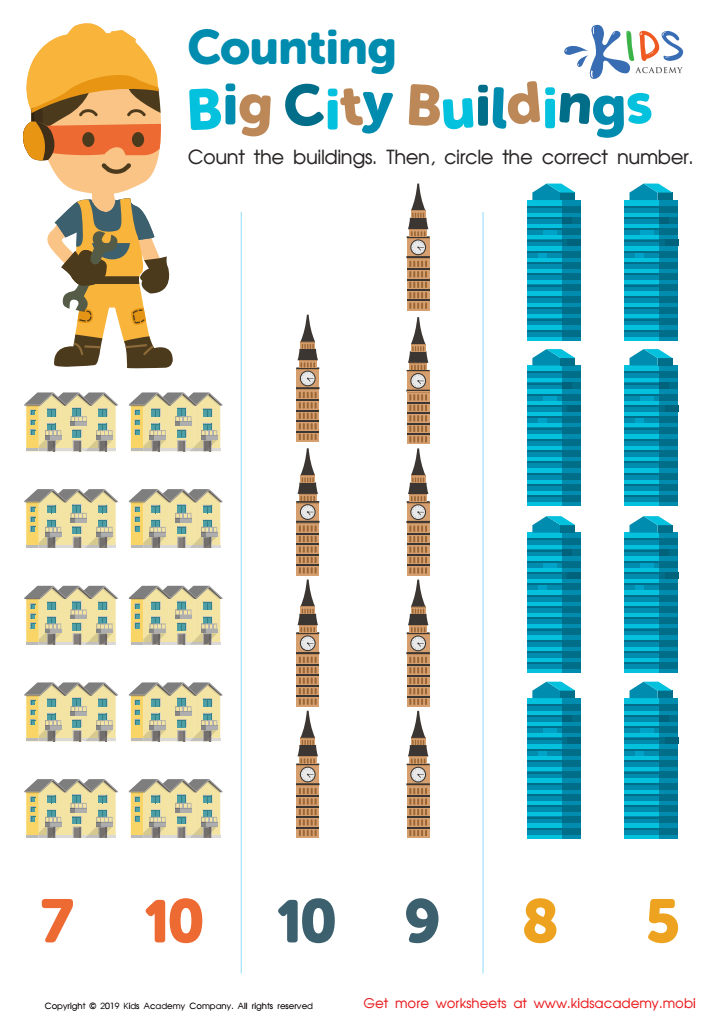

Counting Big City Buildings Worksheet
Understanding quantities and numbers is fundamental for children aged 5-9 as it lays the groundwork for their mathematical, cognitive, and social development. Mastering basic numerical concepts helps children comprehend more advanced math topics like arithmetic, geometry, and logic, facilitating academic success.
When children grasp early numerical concepts, they develop problem-solving skills and an ability to think critically. These cognitive benefits extend to other subjects, including science and reading, as math integrates pattern recognition and logical reasoning, which are essential in these areas too.
Socially, having strong numerical skills fosters confidence. Children who understand numbers participate more actively in classroom activities, consequently improving their communication and teamwork skills. Additionally, early familiarity with numbers helps in everyday tasks like telling time, handling money, and sharing fairly, helping children navigate their world more effectively.
Moreover, understanding numbers connects to essential life skills. Pupils can better discern quantities and proportions, leading to healthier choices and practical decision-making. Such competence can also spark an interest in STEM-related fields, encouraging a mindset geared toward innovation and critical inquiry.
Parents and teachers should emphasize early numerical literacy to equip children with foundational skills, setting them up not only for academic success but also for becoming well-rounded, capable individuals.
 Assign to My Students
Assign to My Students
















